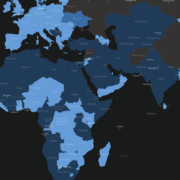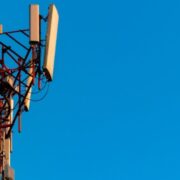Ever lingered a little too long on an ex’s Facebook page, looking at their pictures and reading their statuses, including those posted in 2010? Ever gone on their WhatsApp and wondered if that sad status with a bunch of crying emojies means that all is not well in their new relationship? Woke up in the middle of the night to check if they are online so you can send that ‘Hey you’ text that is supposed to rekindle your old romance? Sounds innocent right, except to some it doesn’t, and it constitutes stalking, a violation of one’s online privacy.
With a lot of our information posted online, keeping that information safe is the only reason people keep on posting their information when they can be used in malicious ways should they fall in the wrong hands.
By Pearson Mbendera
But while most people are scared of their information being misused by hackers, the government and its agencies or by the owners of the software by selling the information, sometimes, the people we know and trust may as well be the ones harboring malicious thoughts over our information, and their motives, more personal than those of some big corporation.
I remember when I once applied for a job, and a couple of days later, after logging in to my LinkedIn account, I realized the guy doing the recruiting had checked out my profile. At first I was happy, because that meant he had received my application and gone through it, surely I was in contention to get the job.
But afterwards I wondered just how much information he had garnered about me while inputting my name on a search engine? I was mostly sure of the information I had posted myself, but not so sure of the information about me, posted by others.
Maybe there was a picture of me somewhere on the World Wide Web, in a drunken stupor, unaware of what’s going on, and could that picture hurt my chances of getting the job? I felt violated, but at the same time, understanding of the guy’s need to carry out his due diligence on the prospective candidates who were about to join his firm.
But who really wins or losses in such instances?
Technology companies have been spending a lot of money on ensuring that the information of their members has been kept safe, while governments and others have been trying to get hold of that information, as some has been linked to terrorism and other horrible acts by perpetrators who managed to plan and execute their evil acts in secrecy, thanks to the privacy settings.
A couple of months ago, the UK government has been trying to gain access to protected information after it was discovered that the person who committed some terror attacks in London, Khalid Masood appeared to have used WhatsApp prior to him carrying out the killings.
And a lot of governments have been making requests to companies like Google, Facebook and Twitter to have user information and content takedowns on the internet.
Does cracking down on Internet privacy settings help anyone? The same privacy that protects the information of the good people from being made public also protects the information of the evil doers.
Will giving governments’ access to people’s online activities ensure the safety of the public or simply infringe on the privacy of the innocent while the would-be perpetrators find more hidden ways of sharing their information and keeping it a secret.
So who wins or losses, when Internet privacy is compromised? And is the violation of people’s privacy, a price we all have to pay for the greater good?












Comments